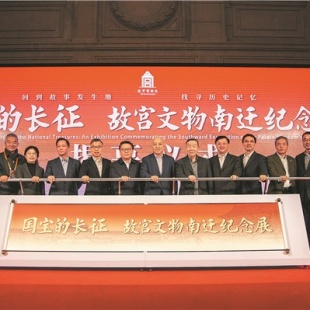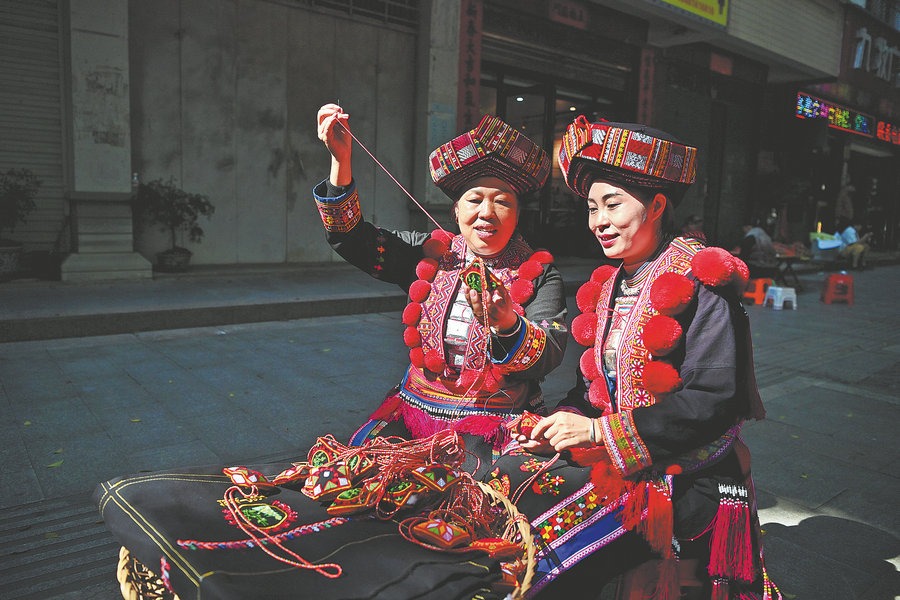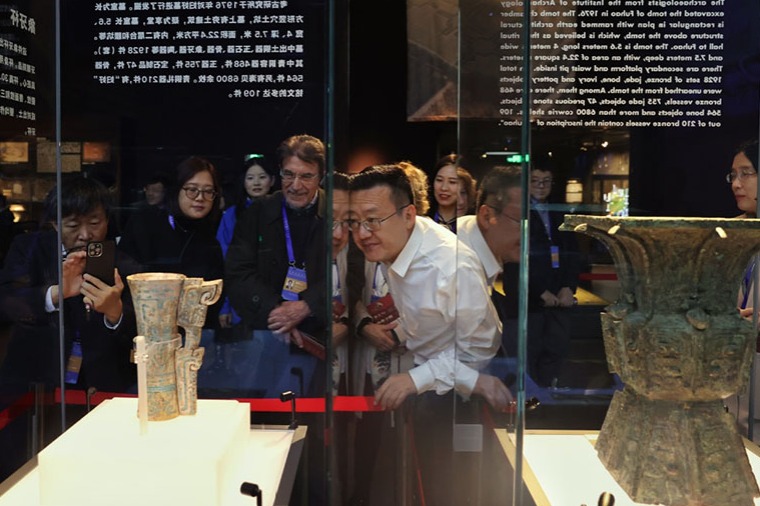Treasures continue their journey
An exhibition at the city's history museum reveals the story of the emergency relocation of celebrated relics during Japan's invasion of China, Zhang Kun reports.


The items' initial relocation from the Palace Museum immediately captivated public attention. Some feared the objects could be damaged, sold or lost.
"People working for the Palace Museum cherished the artifacts like their own lives and carried out strict measures to ensure their protection throughout the lengthy process," Zheng says, noting that workers at the Palace Museum in Shanghai produced more than 90 volumes of documentation about the objects.
As the items were moving around, the Palace Museum held several exhibitions, the most important of which took place in London from 1935 to 1936.
"It was the first overseas exhibition of artifacts from the Palace Museum and, for that matter, also the first large-scale overseas exhibition of any artifacts from China," Zheng says.
Before they were shipped overseas, 735 objects were showcased at a preview exhibition in Shanghai. After their return to China, another exhibition was held in Nanjing.
People from China's cultural and intellectual circles were actively involved in these exhibitions. They engaged in heated discussions about which objects could travel abroad and which could not.
Many acclaimed collectors in Europe, such as Percival Victor David, a prominent connoisseur of Chinese ceramics, had previously recognized only porcelain as representative Chinese artifacts, while other items, such as jade ware, were considered unimportant ornamental handicrafts, but this exhibition "helped them realize that paintings and calligraphy are truly the essence of Chinese culture", Zheng says.
Over the past decades, more people have started to realize the significance of this history. While there are two Palace Museums, in Beijing and Taipei, both are dedicated to promoting Chinese culture. In 2010, workers from the Palace Museum in Beijing and their colleagues in Taipei took a journey together along the relocation route's important locations.



































